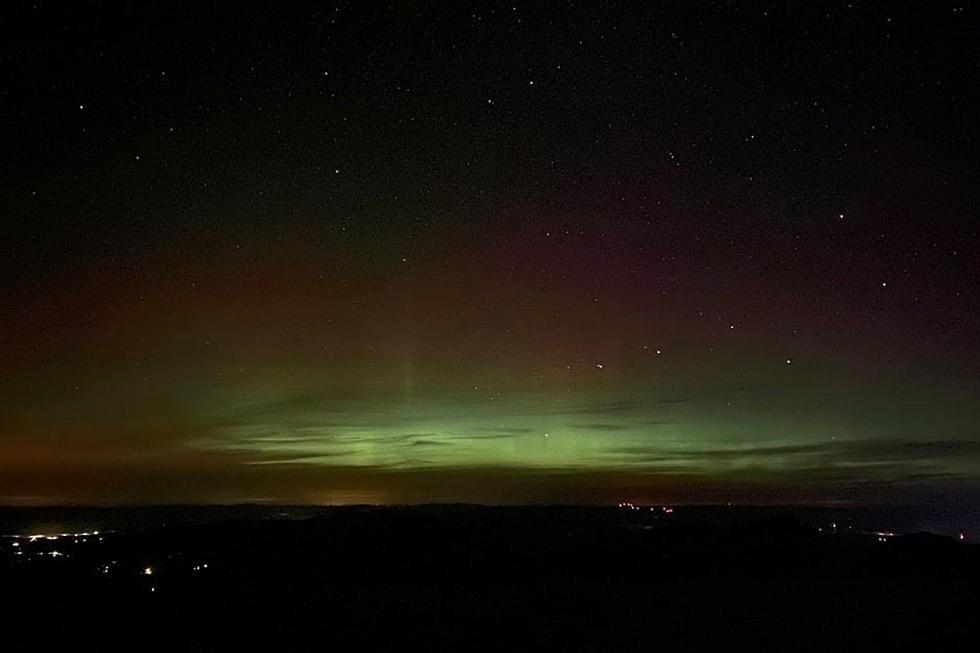
In a Rare Sight, the Northern Lights Were Spotted From New Hampshire
It's not that often that you hear about the Northern Lights being visible from New Hampshire, but Granite Staters were all blessed with that treat in the early morning hours on Tuesday.
Northern Lights
Scientifically referred to as "aurora borealis," the Northern Lights, according to the Library of Congress, are essentially curtains of light with a greenish hue seen spread across the sky, mostly in the northern and southern hemisphere. The lights are caused by solar activity creating a cloud of gas that collides with Earth's magnetic field if it makes it that far.
When that collision happens, currents of charged particles are created that are then boosted into the Earth's atmosphere, where they interact with oxygen and nitrogen atoms, creating the light that is visible in the sky, if we're lucky.
It just so happens that a couple of places in New Hampshire were that lucky, starting first with one of the best places to see anything astronomical in New Hampshire -- Mount Washington.
As if that wasn't amazing enough, New Hampshire photographer Rob Wright ended up catching footage of them for over 40 minutes at little bit closer to sea level in Rollinsford, New Hampshire, which he turned into a 6-second time lapse video.
Definitely not an every evening occurrence in New Hampshire or any part of New England in general, but on the rare occasion that they are visible, they sure don't shy away from the beauty.



